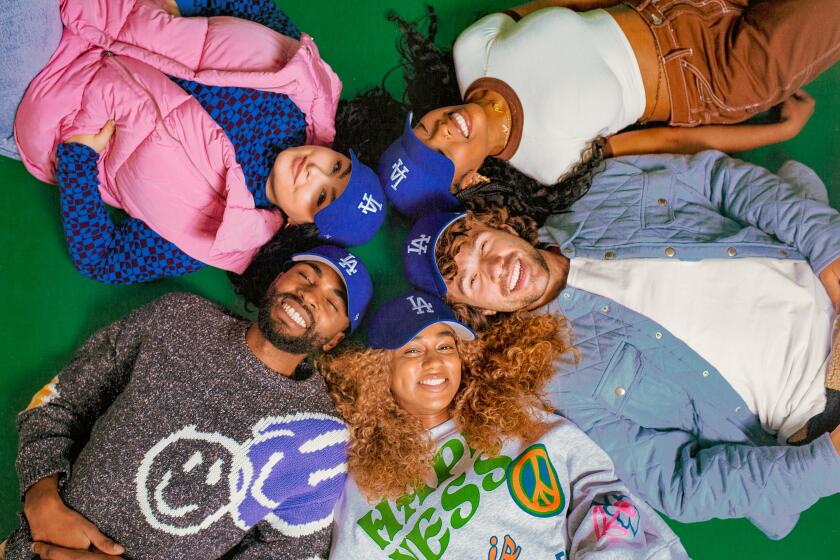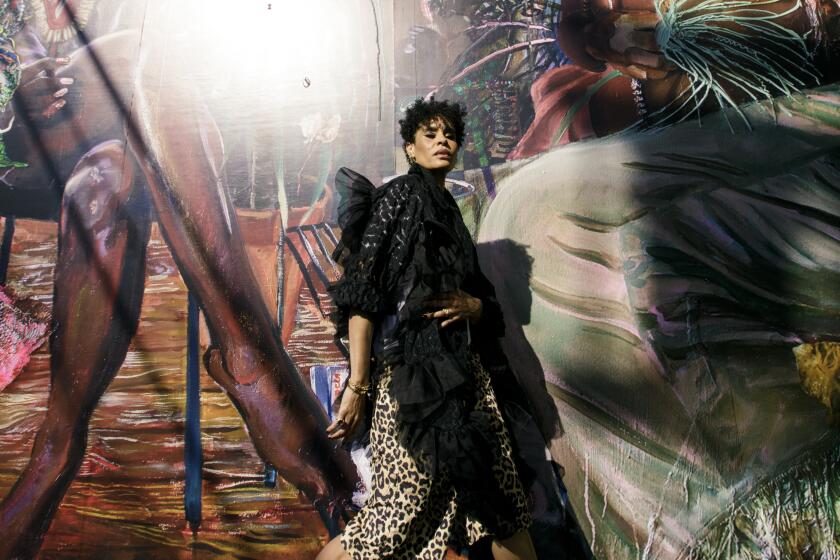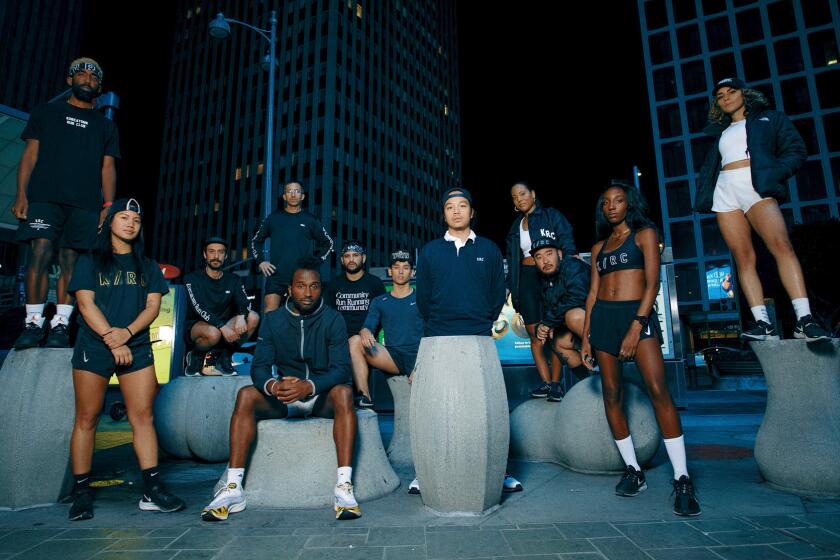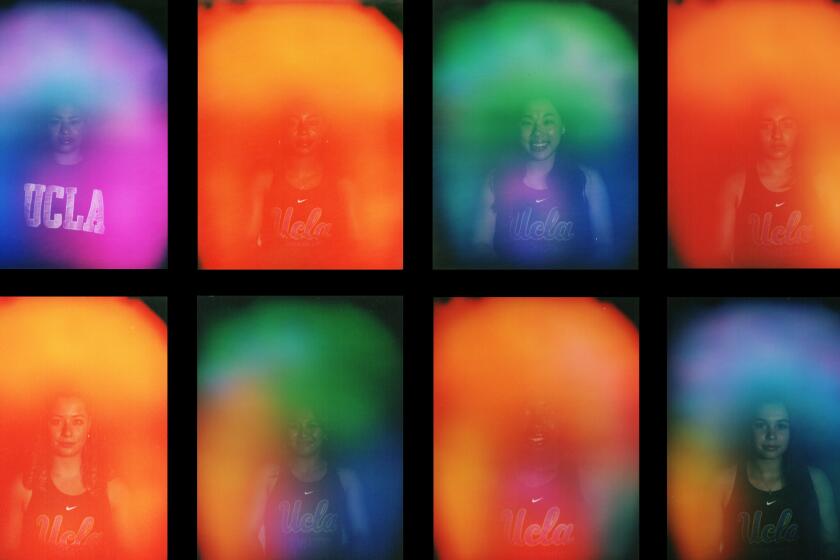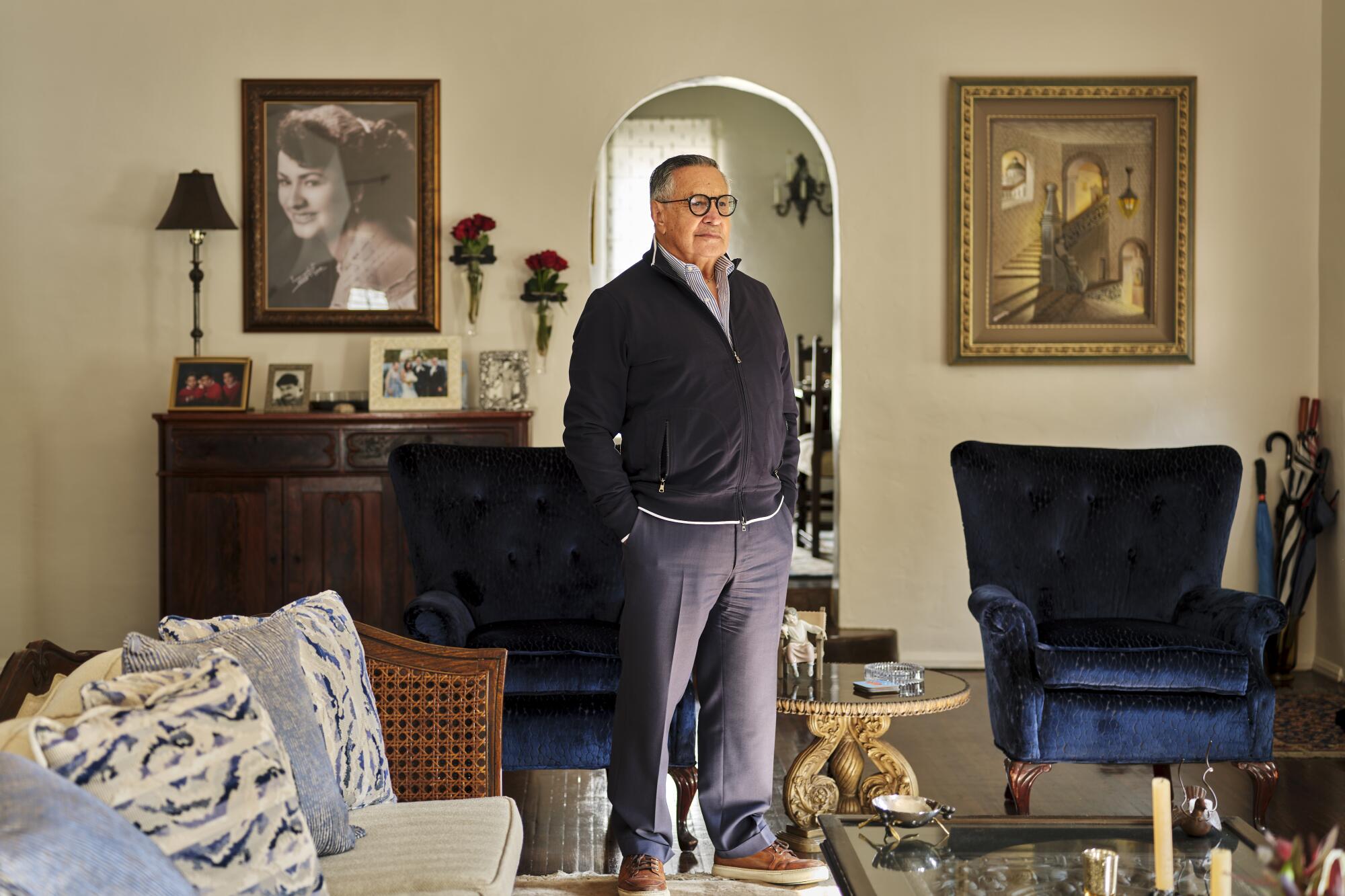
- Share via
This story is part of Image issue 6, “Energy,” an exploration what sports style feels like in the City of Champions. See the full package here.
Sixty years is a long time to do the same job day in and day out, but to hear Jaime Jarrín tell it, six decades doesn’t feel terrible when you’ve found your calling. The Dodgers’ Spanish-language radio commentator, who will retire at the end of the 2022 season, has always felt a thrill sitting in the stadium and watching the Major League Baseball players start season after season. Sitting close to the microphone, his eyes darting around the field and his ears attuned to the sounds of the crowd, Jarrín has brought that excitement to Dodgers fans across generations. His trademark voice is punctuated with excitement when the action gets to a fever pitch. His trademark “La pelota se va, se va, se va, y despidala con un beso” is canon now for Spanish-language sports fans. Jarrín relays the play-by-play of the game, of course, but also the zeal of the game, like when the crowd gives a standing ovation to Fernando Valenzuela, one of the many players whose career Jarrín has witnessed.
How do you capture something — or transform it, even — through your own lens for others to receive it? I think about this often as a writer focusing on visual art. The term “Stendhal syndrome” comes to mind. It’s when a work of art takes over your system so intensely that you physically react to what you are seeing. Your body absorbs the intensity, the beauty, the complexity of a work of art. It’s not easy to translate this feeling into words for others to share in the encounter. Jarrín found the formula for watching a sport he loves immensely and enveloping radio listeners in the action of it all. His voice has boomed through their living rooms and backyards, generation after generation. You didn’t have to be in the stadium to experience the thrill.
The history of baseball in L.A. is not immune from fraught politics (take the displacement debacle during the construction of Dodger Stadium, for example). No league or team is perfect. But there’s something to be said about this one voice that spans generations. The love of the game fuels Jarrín’s every broadcast, and his words crackle with the passion of watching baseball fans erupt into cheers. He’s cheering with them.

Eva Recinos: You have seen so many moments in baseball history. What does it feel like to think about all the things that you‘ve witnessed over the decades?
Jaime Jarrín: Well, I feel so fortunate, so blessed to have been able to follow the Dodgers as closely as I have. I have seen in action the best of the best, starting with Willie Mays, Sandy Koufax. At the same time, to be working with the titans in my profession, like Vin Scully, and so many great announcers. It has been a great ride for me. Next year will be my 64th season with the Dodgers. I never thought that I would last this long with them.
When I started with them [in] 1959, I thought I would be with the Dodgers five, six, seven, eight years at most, then move to something else. I was doing boxing also. Television in Spanish was just coming up. I thought television would be my next step — I did work for Telemundo for almost eight years — but I have always been a radio man. I love doing radio. I have been in front of a microphone for 70 years now, starting when I was 16 years old back home in Ecuador. It has been really a great, great ride for me being with the Dodgers, a great organization that has cultivated the Latino market. I think we have been blessed to be able to give them the game that they love — baseball in their own language. It’s been very special for me.
Image Energy stories
Koreatown Run Club knows what running style is all about
Dave Schilling dives deep on the most popular fashion piece in L.A.: the Dodger hat
The women of UCLA gymnastics show us the energy they’re on, literally
Angela Manuel-Davis takes you to her church on wheels
Micah Fluellen remembers ‘White Men Can’t Jump’ on the courts of L.A.
ER: You’ve talked before about how you’re translating what you’re seeing, but you’re also creating entertainment for people because you’re adding your own spin to it. You’re adding your own emotion in the words that you choose. How have you cultivated that practice over all these decades?
JJ: When I am doing a baseball game, I am not only relating what’s going on on the field. I think I’m doing a public service. People work so hard — from morning to night — and they get home very tired. So what a great opportunity for me to give them something they can enjoy.
I have been very fortunate to receive many accolades, many recognitions, especially in the years since I was inducted into the [National Baseball] Hall of Fame in ’98. But what really pleases me is when I am on the streets, when I am walking to the bank or supermarket or restaurant — many people approach me [and] they say, “Mr. Jarrín, thank you for giving us baseball. Thanks to you, I was able to spend time with my grandfather. He used to take me to the back of the house to listen to the baseball games. Then my father used to take me to Dodger Stadium. And when we would go to the stadium, we would listen to you.” Or, “My mother fell in love with your voice calling the games.” That pleases me the most, knowing I have done something to give them some form of entertainment, to get the family very close. That’s what fills my heart.
ER: I do think that Dodger Stadium has become a place specifically for Latinx sports fans. How have you seen this relationship to the team grow?
JJ: At the beginning, when I started with the Dodgers, like 1959, the Latinos coming to the ballpark were 8%, 10% at the most. But we have been able to reach them and to really create new baseball fans. Thanks to Fernando Valenzuela and Fernandomania, we were able to reach all corners of Mexico and here in Southern California. We were teaching them baseball. Many people came here without knowing baseball. They were indifferent to us. They were soccer fans. But thanks to Fernando in particular, they got interested in baseball. I think it was my duty to try to teach them the meaning of baseball. We have seen the growth of our listeners. We have a great audience.
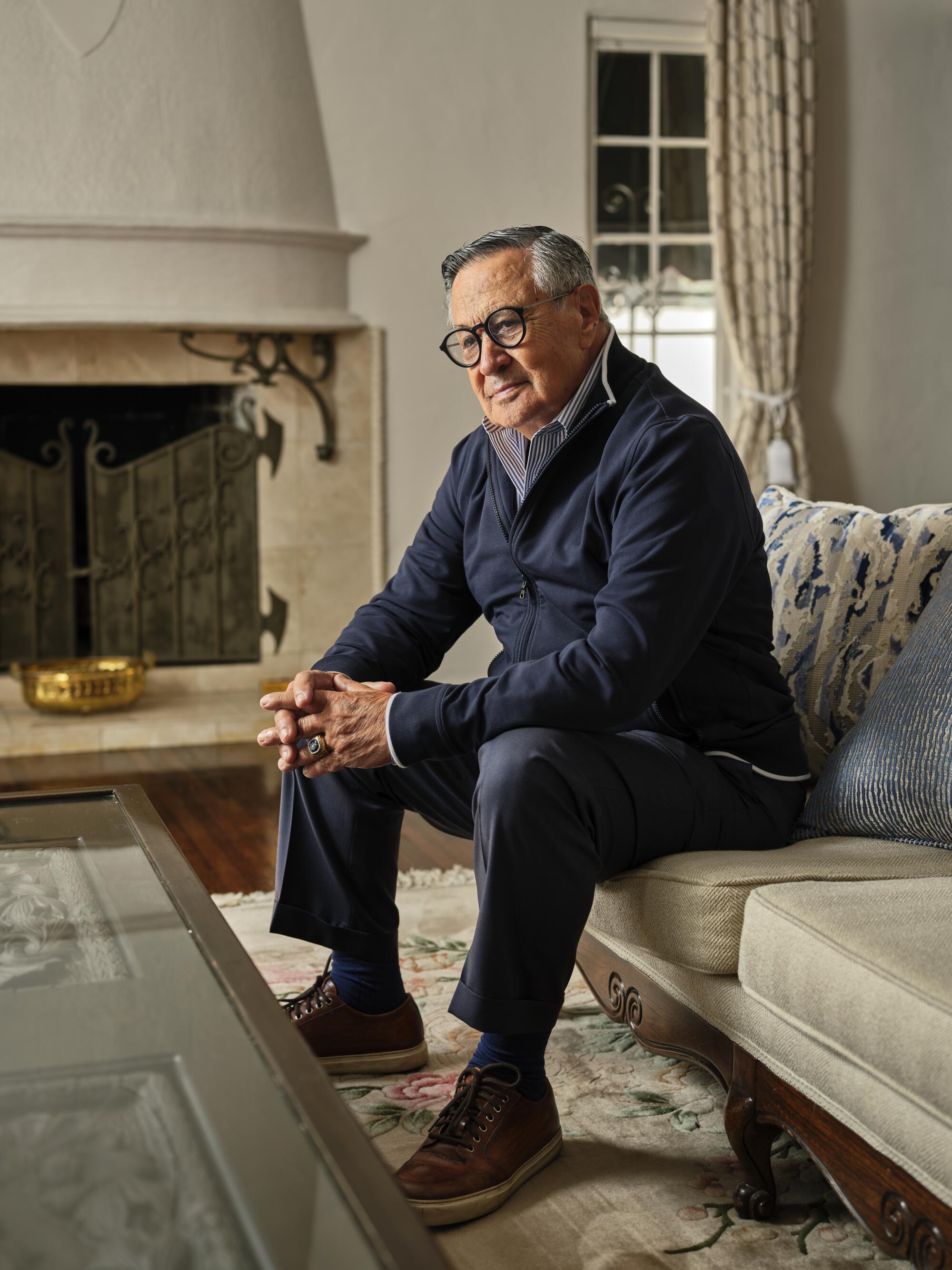
ER: You’ve also talked about how there’s this magic to the energy of the crowd and how infectious it is. How do you try to infuse that energy into your own work?
JJ: The first time I went to a baseball game was 1958. I didn’t know there was a stadium as big as the L.A. Coliseum. To hear the roar of 75,000 people — I was shocked. I was really surprised. I said, “My God! My goodness!” I keep that in my mind — the role of the people.
I appreciate that [even more] now. Because of the pandemic, we were not traveling with the team. In many instances, the team was playing in other cities. It’s not the same at all because there is nothing for an announcer to really feel what’s going on inside of the ballpark. When the people are excited, your words come out more fluidly, and that really inspires you. I am very fortunate to play before 45,000 to 50,000 people every single time. In other cities, it’s 18,000 people, 20,000 people. But at Dodger Stadium it is always capacity. And that really gives you a very special feeling that really inspires you to really do the most. I always pray, “God, please give me the talent to put into words what my eyes have seen, what I am feeling right now.”
The Dodgers’ hat is bigger than baseball. The interlocking L-A is iconic, and to see it on someone’s head is to feel an instant kinship.
ER: When you talked about your retirement, Vin Scully expressed his best wishes for you. What’s it been like to interact with him?
JJ: Well, Vin has been so good to me really. At the beginning, we didn’t travel with the team. We used to do what we are doing now with the pandemic. But in those days, baseball games weren’t televised, and [there was] only one game a week. We had to translate whatever [Vin] was saying. That was very tough. It was difficult. But we did our best.
Since day one, we became very close friends, Vin and I. He has been my teacher, my mentor, my friend. He has been everything to me. He has helped me a lot, giving me advice. Usually, he doesn’t give advice to anybody. To me, he said, “I’m going to give you two or three [pieces of ] advice, nothing more.” But he was always in my corner. When we were traveling, we were always together — going to the same restaurants, eating together. And it was fantastic. For [the Dodgers], my broadcast is as important as the English broadcast. You will see that in other stations, Spanish is second-class. But for us with the Dodgers, [Spanish] has been first-class, and [I] really appreciate that. That’s one of the reasons why I have lasted so long. My longevity is in part because of that.
I will say [there are] three reasons for my longevity. First is my love for the game. I love baseball. I fell in love with the sport. I can do two games a day, seven days a week, no problem. The second reason is the fact that my wife was always supporting me. She was behind me, even though she didn’t care much about the game itself. But she was always behind me. Never complained about my trips away from home. She gets all the credit. And the third is the fact that the Dodgers really care about the Latino community. Really, they do.
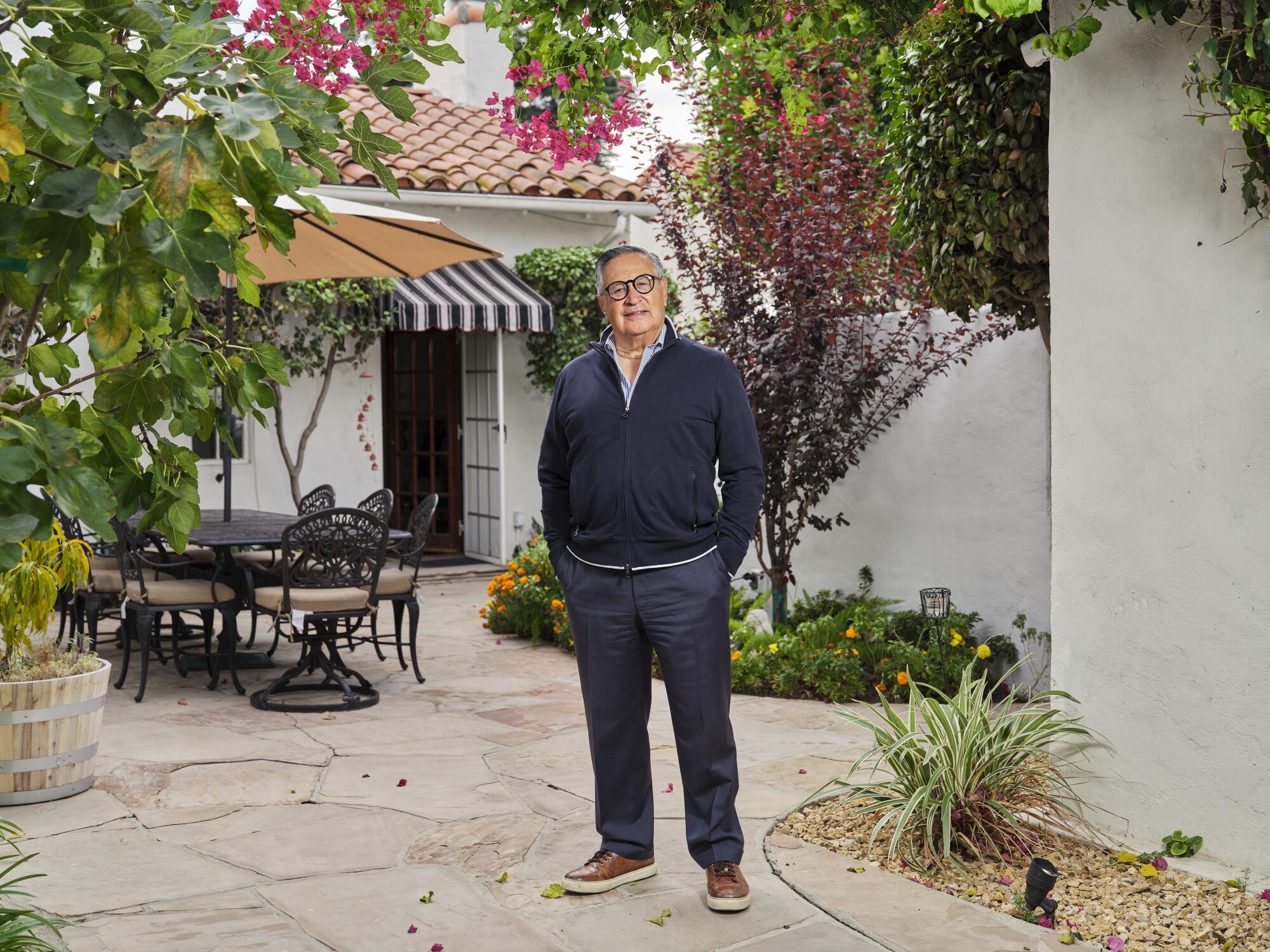
ER: In an interview, you mentioned you want to be remembered for showing up for work every day. But what do you think is the most important part of your legacy?
JJ: We are immigrants, we are here in this country. Whatever you [do], if you are a radio, TV announcer, please do with the best of your knowledge. First, you have to choose what you really love to do. Then, once you have found what you want to do, you have to put yourself on top of everything and work with all your efforts in what do you do. That’s very, very important, because I see so many people [who] hate what they do. And they don’t care about what they do. And that’s no good. That’s no good at all.

